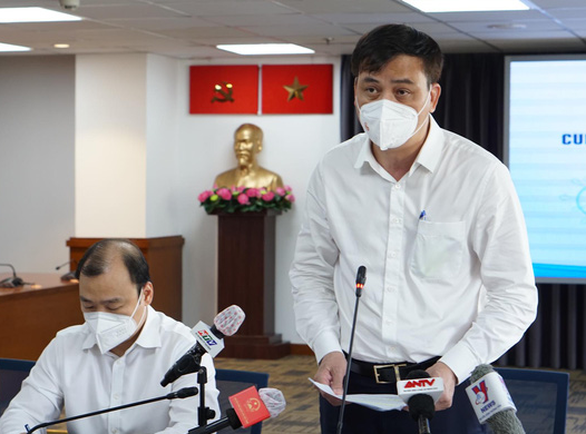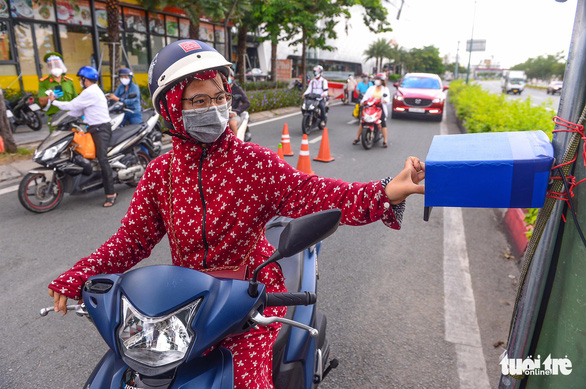Ho Chi Minh City officials have decided to ease coronavirus social distancing restrictions from October 1 to facilitate the recovery of socio-economic operations under 'new normal' conditions after months of lockdown.
The city will not reopen all activities after September 30 but follow a step-by-step road map, said the city’s deputy chairman Le Hoa Binh at a press conference to announce a directive on updated COVID-19 control measures on Thursday.
“Residents’ daily activities will be gradually restored under 'new normal' conditions but this does not mean everybody will flock to the streets,” the official added, referring to Vietnam's new strategy to live safely with the virus instead of trying to pursue a 'zero-COVID' policy.
Under the directive, the city allows the reopening of production and trading establishments in industrial zones, processing and exporting zones, high-tech parks, as well as in districts and Thu Duc City.
Take-away food and drink providers, traditional markets, wholesale markets, shopping centers, and convenience stores are also permitted to resume operations.
Barbershops and hair salons are allowed to run at up to 50 percent of their capacity.
Also being allowed are medical service providers, pharmacies, public utility services, post and telecommunications, construction works, and warehouses.
Public transport service providers are permitted to reopen under the regulations of transport and health authorities.
Foreign businesses’ representative offices, foreign banks’ branches, and providers of business support services are also permitted to operate.
Tourist sites and resorts are allowed to operate at up to 50 percent of their capacity while weddings or funerals are limited to a maximum of 20 attendees each.
Gathering at each indoor activity is limited to 10 people and can be extended to a maximum of 70 people if all the attendees have fully been vaccinated or have recovered from COVID-19.
The same limits are applicable to gatherings at religious and worship sites.
Meanwhile, the cap on outdoor gatherings is 100, subject to the same condition.
|
|
| A woman is seen making movement declaration by holding up her QR code on her phone to a scanner on Pham Van Dong Street, Ho Chi Minh City. Photo: Quang Dinh / Tuoi Tre |
The directive also stated that non-essential services and businesses, such as beauty salons, karaoke venues, discotheques, pubs, bars and massage parlors, and ware and lottery ticket peddling will remain closed.
The city will keep 12 checkpoints at its gateways and 39 other checkpoints at the entrances to other localities.
Authorities also require people to use a QR code during travels for checking by relevant agencies.
Without a QR code, people must have documents proving their recovery from COVID-19 for less than 180 days or have been injected with at least one shot no less than 14 days before travels.
"After September 30, travel passes will be no longer applied and an IT-based method will be used instead,” the deputy chairman said.
The city asks people not to leave Ho Chi Minh City, except for absolutely necessary cases that are subject to instructions from local transport authorities.
Since the pandemic hit Vietnam in early 2020, the city has documented 381,390 COVID-19 cases, including 14,745 deaths, leading the country in both infections and deaths, the Ministry of Health reported on Wednesday.
Nationwide, the country has registered 779,398 infection cases, including 583,509 recoveries and 19,098 fatalities, in 62 out of its 63 cities and provinces.
The only locality staying free from COVID-19 in Vietnam is Cao Bang Province, where strict measures for COVID-19 prevention have been applied.
Like us on Facebook or follow us on Twitter to get the latest news about Vietnam!


















































